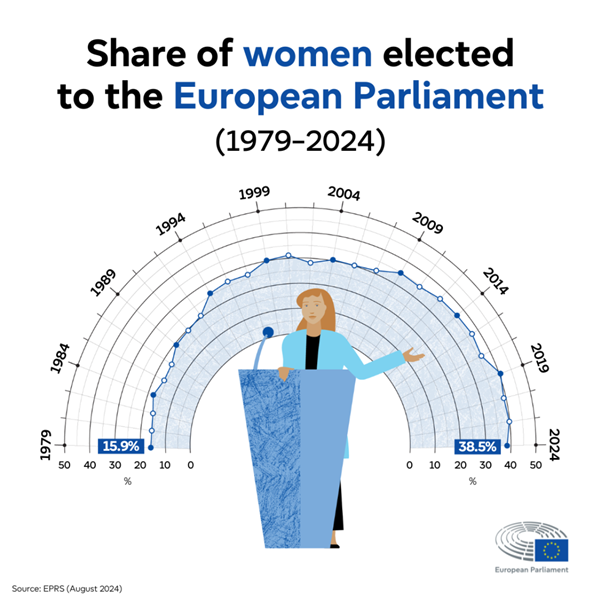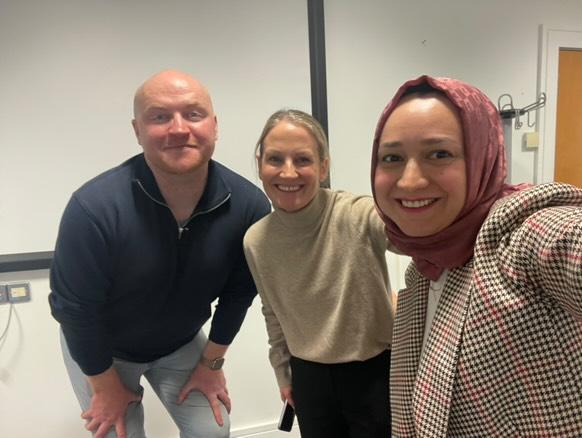Women in Ireland are estimated to undertake 38.2 hours of care work per week, placing women in Ireland amongst the three countries with the highest levels of unpaid work along with Romania and Malta. Similarly, men in Ireland also have relatively high rates of unpaid work, with an average of 19.8 hours per week. They rank third in terms of unpaid work among men in European countries, behind Latvia and Romania. Despite both genders engaging in substantial unpaid work, Ireland still experiences a notable gender gap in unpaid care work, placing seventh highest in the European Union in terms of unpaid hours. This indicates that women in Ireland bear a disproportionate burden when it comes to unpaid care responsibilities. Furthermore, the figures reveal that women in Ireland spend an average of 10.5 hours per week on housework specifically. Additionally, having a partner significantly increases women’s unpaid workload, with an increase of 15 hours if the partner is unemployed and 14 hours if the partner is employed. (ESRI, 2019)
Russell, H., R. Grotti, F. McGinnity and I. Privalko (2019). Caring and unpaid work in Ireland, Dublin: ESRI and The Irish Human Rights and Equality Commission (IHREC), Available at: https://doi.org/10.26504/bkmnext382
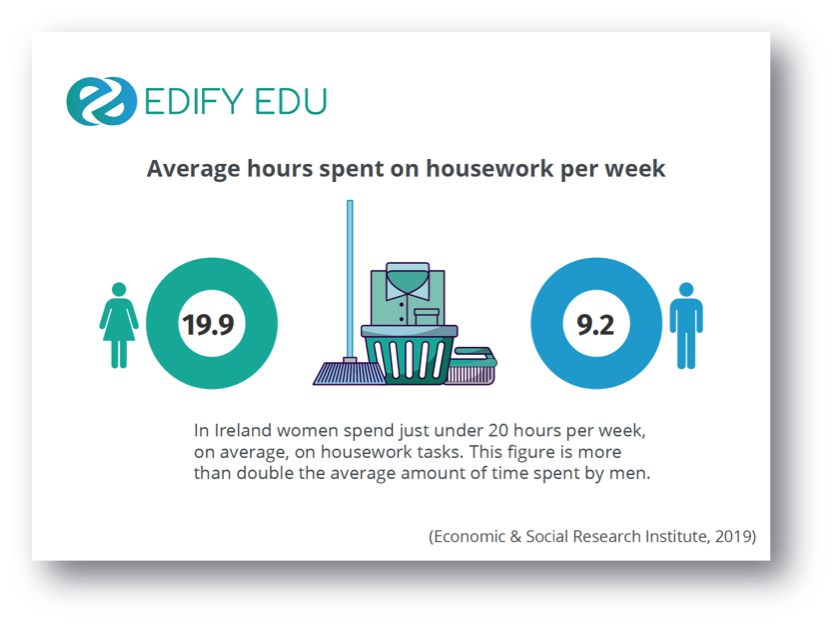
The Irish Electoral Act of 2012 introduced gender quotas of 30% into the electoral system, aiming to increase female representation. In 2023, this quota was raised to 40% for political parties running candidates for the Oireachtas, and parties failing to meet the quota may face penalties. Despite these efforts, Ireland currently has a low representation of women in Dáil Éireann at only 22.5%, (Oireachtas, 2023) ranking 98th globally in terms of women’s representation in national parliaments. Ireland falls behind countries such as China and Iraq in this regard (National Women’s Council, 2023).
Keenan and McGing (2022) suggest that although women are well-represented in the teaching profession, which often serves as a pathway to political leadership in the Dáil, they still encounter challenges in achieving proportional representation in politics. Several factors contribute to this underrepresentation. Firstly, research indicates that having access to social networks, which are often facilitated by professions like teaching, can be advantageous for entering politics. However, women may face constraints in terms of time availability and financial resources, which can affect their willingness to participate in elections. Additionally, traditional gender roles and societal norms can undermine women’s confidence in their qualifications and likelihood of success as political candidates, ultimately discouraging them from pursuing political careers.
Keenan, L. and McGing, C. (2022). ‘An unfinished democracy’: gender and political representation in the Republic of Ireland. Irish Political Studies, 37(4), pp.467-476.
National Women’s Council. (2023). ‘40% Gender Quotas Pave the Way for Full Representation of Women: NWC. Available at: https://www.nwci.ie/learn/article/40_gender_quotas_pave_the_way_for_full_representation_of_women_nwc
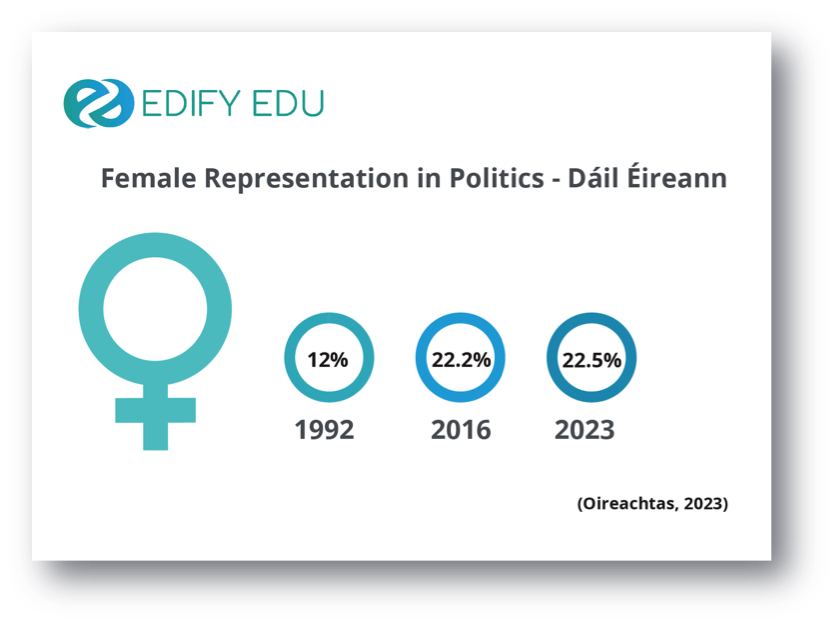
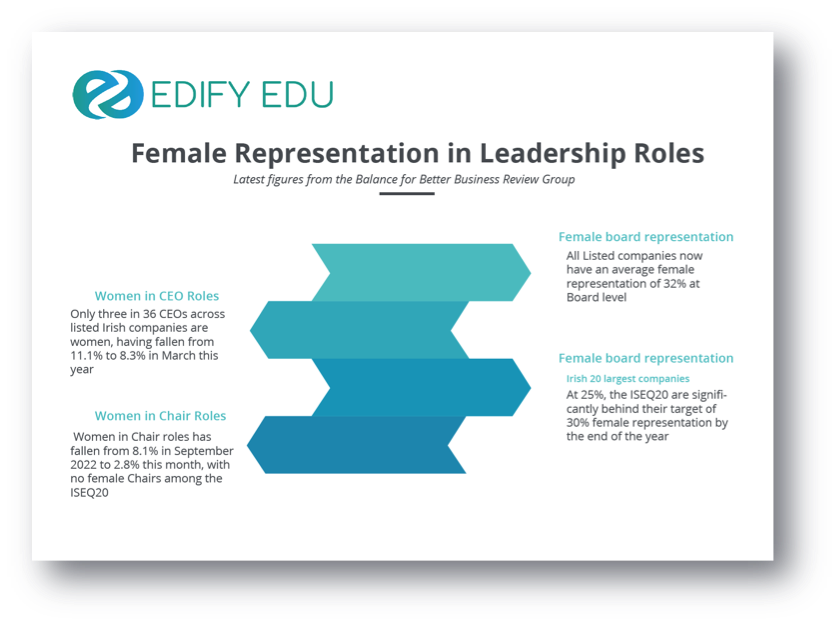
The Irish public sector operates within a legislative framework that recognises the importance of equality, diversity and inclusion in both the workforce and work environment. These frameworks include policies that support the rights and inclusion of various groups based on equality grounds. Several policies have been implemented to address specific areas of concern.
One such policy is the Comprehensive Employment Strategy for People with Disabilities (2015-2024), which aims to increase the representation of people with disabilities in the workforce from 3% to 6%. The National Strategy for Women and Girls (2017-2020) focuses on issues such as the gender pay gap, the overrepresentation of women in low-paid and precarious employment, and achieving gender balance on State Boards with a target of 40% representation for each gender. By 2019, this goal had been achieved, with the overall State Board composition at 53.9% male and 46.1% female for the 226 non-vacant State Boards.
However, progress in achieving gender balance in senior leadership positions within Irish businesses has been slower. The 20 largest companies listed on the Irish Stock Exchange, known as the ISEQ20, have a female representation of 25%, significantly below their target of 30% by the end of the 2023. Furthermore, out of 36 CEOs in listed Irish companies, only three are women, representing a decline from 11.1% to 8.3% as of March this year.
While there are policies, targets, and initiatives like Balance for Better Business, co-founded by Ireland’s Taoiseach Leo Varadkar, that are making efforts towards gender equality in business, there is still much work to be done. It is crucial for organisations to view gender equality as a fundamental value embedded in their company culture rather than merely a checkbox exercise.
Department of Justice and Equality. (2017) ‘National Strategy for Women and Girls 2017-2020: creating a better society for all’. Available at: https://assets.gov.ie/6427/88cc57e206a34e94aeff2310f2b100d5.pdf
Department of Enterprise Trade and Employment. (2023) ‘Progress continues towards gender balance on boards but more work needed to see women advance into senior leadership roles’. Available at: https://enterprise.gov.ie/en/news-and-events/department-news/2023/march/20230307b.html

